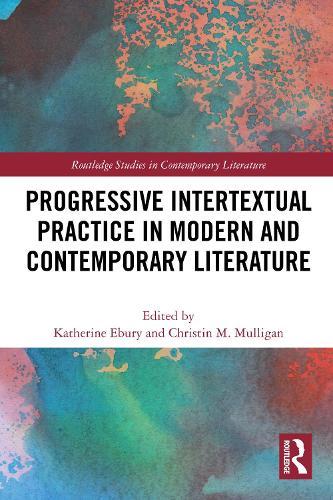Overview
This edited volume aims to reposition intertextuality in relation to recent trends in critical practice. Inspired by the work of Sara Ahmed in particular, our authors explore and reconfigure classic theories of authorship, influence and the text (including those by Roland Barthes, Michel Foucault and Harold Bloom), updating these conversations to include intersectionality specifically, broadly understood to include gendered, racial and other forms of social justice including disability, and the progressive impact of the transmission and transformation of texts. This diverse volume includes discussions of major canonical works such as James Joyce’s Ulysses alongside the recent contemporary literature by authors such as Siri Husvedt and Maggie O’Farrell, as well as theoretical interventions. This volume also engages with how intertextuality can facilitate interdisciplinary and ekphrastic thinking and representation, as the inspiration of music and the visual arts for texts and their transmission is addressed. The choice of intertexts become deliberately political, ethical and artistic signifiers for the authors discussed in this volume, and our contributors are thus enabled to address topics ranging from visual impairment to Shakespearean motherhood to the influence of Jazz culture on writing on the Northern Irish Troubles.
Full Product Details
Author: Katherine Ebury ,
Christin M. Mulligan
Publisher: Taylor & Francis Ltd
Imprint: Routledge
Weight: 0.330kg
ISBN: 9781032578279
ISBN 10: 1032578270
Pages: 164
Publication Date: 27 October 2025
Audience:
College/higher education
,
Tertiary & Higher Education
Format: Paperback
Publisher's Status: Forthcoming
Availability: Not yet available

This item is yet to be released. You can pre-order this item and we will dispatch it to you upon its release.
Reviews
A wide ranging new intervention on intertextuality, Katherine Ebury and Cristin Mulligan’s edited collection of essays offers us new readings of classic theories of authorship and influence. Bringing together theories from Harold Bloom, Mikhail Bakhtin, Roland Barthes, and Julia Kristeva, various interarts (visual and musical), and a diverse selection of literary examples from the twentieth and twenty-first centuries, the volume produces new approaches to analysing what happens in intertextual practice. The volume's focus on feminist citational practice will make it an essential introduction for students, in particular. Alexandra Kingston-Reese, Senior Lecturer, University of York, UK Progressive Intertextual Practice in Modern and Contemporary Literature provides a valuable and thought provoking contribution to contemporary discussions of authorial and textual relationships. The collection revisits, revises and revitalises the concept of intertextuality by putting it into expanded conversation with more recent intersecting and intersectional critical discourses. In doing so the collection makes an illuminating and persuasive case for the progressive character of intertextuality as a political, aesthetic and ethical practice. In six nuanced and original chapters, the contributors explore intertexuality as a literary and critical mode across a richly varied range of writers and texts. The collection is a rewarding read not only for anyone interested in theories of intertextuality but also for those interested in politics, aesthetics and ethics in contemporary literature. Katherine Isobel Baxter, Deputy Faculty Pro Vice-Chancellor, Northumbria University, UK
Author Information
Katherine Ebury is Senior Lecturer in Modern Literature at the University of Sheffield. Christin M. Mulligan is Adjunct Professor at Saint Joseph's University.



